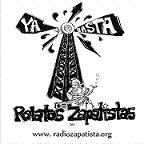
represión
Denunciation by Concepción Avendaño: Harrassment by the Chiapas government
This July 2, 2011, day of the march against violence against women in San Cristóbal de Las Casas,the activist Concepción Avendaño Villafuerte received a citation to appear at the General Attorney’s office (PGR) this next July 5. The compañera fears for her freedom and asks that we remain attentive and calls for solidarity.(Descarga aquí)

URGENT ACTION: Death threats, harrassment and risk of forced displacement in San Marcos Avilés
June 27, 2011
URGENT ACTION # 3
Death threats, harrassment and risk of forced displacement in San Marcos AvilésAccording to information documented by the Center for Human Rights (Frayba), in the ejido of San Marcos Aviles, Chilon municipality, there are death threats, harrassment, looting and the risk of forced displacement of support bases of the Zapatista Army of National Liberation (BAEZLN) at the hands of some residents of the same ejido, members of the Institutional Revolutionary Party (PRI), Democratic Revolution Party (PRD) and Green Party of Mexico (PVEM).
In response, Frayba is making known its concern at the imminent risk to life, personal integrity and security faced by BAEZLN, inhabitants of the ejido of San Marcos Avilés, as these death threats and harrassment have increased during recent days, further, the plundering of land is preventing work in the fields and the harvest of their crops, which results in those affected suffering from a lack of food, causing serious damage to the health of children, women, men, and the elderly.
Given these facts, BAEZLN families fear being displaced again, for which reason the Centre of Human Rights states:
The responsibility of the state by default, as to date government authorities have not acted to ensure the integrity and security of BAEZLN and access to land despite the many interventions submitted by the Center for Human Rights;
and demands:
- An end to death threats, harassment and theft against BAEZLN by members of political parties in the ejido San Marcos Avilés;
- To protect and safeguard the life, integrity and personal security of the members of BAEZLN, respecting their autonomy process that they have been building for years under the right to self-determination of peoples, established in the Convention (No. 169) concerning Indigenous and tribal people in independent countries, and the United Nations Declaration on the Rights of Indigenous Peoples.
Background:
On September 9, 2010, the Center for Human Rights received a complaint from the Good Government Junta Central Heart of the Zapatistas before the World, of Caracol 2 Resistance and Rebellion 2 for Humanity community based in Oventic, San Andres Sakamch’en of Los Pobres, Chiapas, in relation to threats, harrassment and forced displacement that were suffered by 170 men, women and children of ejido San Marcos BAEZLN Township Chilón Avilés, Chiapas, following the construction in August 2010 of the first autonomous school in the ejido to begin the planned activities of the Zapatista Rebel Autonomous Education System.
That day, 30 people of the ejido San Marcos Avilés affiliated with the PRI, PRD and PVEM parties, led by Lorenzo Ruiz Gómez and Vicente Ruiz López, violently entered the homes of members BAEZLN armed with sticks, machetes and guns, and tried to rape two women, who managed to escape. In order not to respond to aggression, the people of BAEZLN left their homes and sought refuge in the bush. After 33 days of forced displacement without any food or protection, on October 12, 2010 27 families (50 women, 47 men and 77 children, in total 170 people) returned to their community.
As documented by the Center for Human Rights, they found that in the properties of the displaced: the houses had been looted of all their belongings, corn and beans, their coffee plantations and fruit trees had all been destroyed, as well as the animals each family had in their corral.
Since Frayba learned of the problem in the ejido San Marcos Aviles, they have on several occasions informed the government authorities of the situation, to request compliance with their obligation to ensure the integrity and personal security of the inhabitants and to seek a solution to the conflict. Despite this, there was no response.
However, even when the displaced returned to their home community, we received and documented persistent daily threats in the community, so there is a risk of forced displacement. On April 6, 2011, a Civil Camp for Peace was installed in the ejido, composed of civilian observers to deter any violent actions, however they are also being subjected to threats and harassment.
*-*
Send appeals to:
Presidente de la República
Residencia Oficial de los Pinos
Casa Miguel Alemán
Col. San Miguel Chapultepec,
C.P. 11850, México DF
Tel: (52.55) 2789.1100 Fax: (52.55) 5277.2376 Correo: felipe.calderon@presidencia.gob.mx
Lic. José Francisco Blake Mora
Secretario de Gobernación
Bucareli 99, 1er. Piso, Col. Juárez,
Del. Cuauhtémoc,
C.P. 06600 México D.F.
Fax: (52.55) 50933414; Correo: secretario@segob.gob.mx, contacto@segob.gob.mx
Lic. Juan José Sabines Guerrero
Gobernador Constitucional del Estado de Chiapas
Palacio de Gobierno del Estado de Chiapas, 1er Piso
Av. Central y Primera Oriente, Colonia Centro, C.P. 29009
Tuxtla Gutiérrez, Chiapas, México
Fax: +52 961 61 88088 – + 52 961 6188056
Extensión 21120. 21122; Correo: secparticular@chiapas.gob.mx
Dr. Noé Castañón León
Secretario General de Gobierno del Estado de Chiapas
Palacio de Gobierno del Estado de Chiapas, 2do Piso
Av. Central y Primera Oriente, Colonia Centro, C.P. 29009
Tuxtla Gutiérrez, Chiapas, México
Conmutador: + 52 (961) 61 2-90-47 , 61 8-74-60
Extensión: 20003; Correo: secretario@secgobierno.chiapas.gob.mx
Lic. Raciel López Salazar
Procuraduría General de Justicia de Chiapas
Libramiento Norte Y Rosa Del Oriente, No. 2010, Col. El Bosque
C.P. 29049 Tuxtla Gutiérrez, Chiapas
Conmutador: 01 (961) 6-17-23-00 . Teléfono: + 52 (961) 61 6-53-74 , 61 6-53-76, 61 6-57-24,
61 6-34-50
Correo: raciel.lopez@pgje.chiapas.gob.mx
Dr. Santiago Canton
Comisión Interamericana de Derechos Humanos
1889 F Street, NW
Washington, D.C. 20006
USA
Fax 1-202-458-3992
Send copies to:
Centro de Derechos Humanos Fray Bartolomé de Las Casas, A.C.
Calle Brasil 14, Barrio Méxicanos,
29240 San Cristóbal de Las Casas, Chiapas, México
Tel: 967 6787395 , 967 6787396 , Fax: 967 6783548
Correo: accionurgente@frayba.org.mx

 Sites of special importance to the
Sites of special importance to the 

